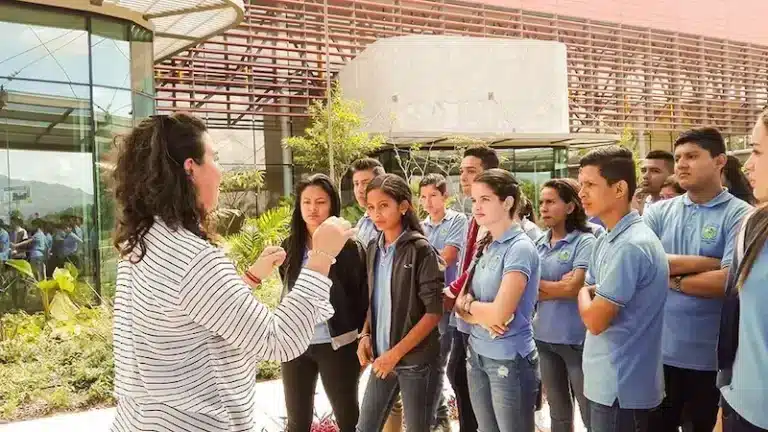Sustainability has become a central pillar in the meetings industry, driving a profound transformation in the way events are planned and executed. In this context, financial innovation plays a key role in implementing strategies that enable the achievement of carbon neutrality without compromising profitability. As the demand for sustainable events grows at an accelerated pace, convention centers and event organizers face the challenge of developing financial models that make the transition to decarbonized practices viable. Efficient resource management, the adoption of ESG (Environmental, Social, and Governance) criteria, and access to financial and fiscal incentives emerge as essential tools in this process.
Financial innovation paves the way for sustainability without compromising profitability.
One of the main challenges in achieving carbon-neutral events is the initial cost associated with implementing sustainable technologies, such as the use of renewable energy, reducing resource consumption, and offsetting emissions. However, financial innovation allows for the development of strategies that transform these costs into long-term investments with tangible returns. A key approach is budget optimization through operational efficiency, where waste reduction and responsible resource use not only lower the carbon footprint but also generate significant savings. Additionally, the incorporation of green financing models, such as sustainable bonds and preferential-rate credit lines for decarbonization projects, opens new opportunities for convention centers seeking to align with global sustainability goals.
In this regard, the Costa Rica Convention Center (CCCR) has developed a comprehensive methodology to ensure that 100% of its events maintain a strong focus on decarbonization. Through CarbonClear Events By Heroica, strategies are implemented that combine precise carbon footprint measurement with financial mechanisms that facilitate the transition to more sustainable events. This model demonstrates that sustainability is not only an environmental responsibility but also an opportunity to optimize costs and strengthen competitiveness in the events market. The implementation of strategies such as purchasing certified clean energy, efficient waste management, and investment in eco-efficient infrastructure significantly reduces environmental impact without affecting profitability.
Financing sustainability today ensures the viability of events tomorrow.
Moreover, government policies and fiscal incentives play a crucial role in the financial viability of sustainable events. Countries with advanced environmental regulations offer benefits such as tax exemptions, subsidies, and certifications that facilitate the adoption of decarbonization practices. In this context, collaboration between the public and private sectors is fundamental in designing financial mechanisms that encourage investment in sustainability within the meetings industry.
The future of carbon-neutral events will depend on the ability of stakeholders to integrate innovative financial strategies that overcome the economic barriers associated with the transition to sustainability. The combination of operational efficiency, access to green financing, and data-driven management models not only minimizes environmental impact but also generates long-term value. The CCCR’s experience with CarbonClear Events By Heroica demonstrates that achieving a balance between sustainability and profitability is possible, setting a replicable model for the rest of the meetings industry.
Decarbonization is the best business when managed with vision and strategy.
In conclusion, financial innovation is emerging as an essential pillar in the consolidation of carbon-neutral events within the meetings industry. As sustainability continues to gain prominence, it is crucial to adopt strategic approaches that enable the efficient and profitable financing of this transition. The combination of incentives, operational efficiency, and clean technologies will not only make events more sustainable but also ensure their economic viability in a market increasingly demanding environmental responsibility.
Senior Accounting Analyst





